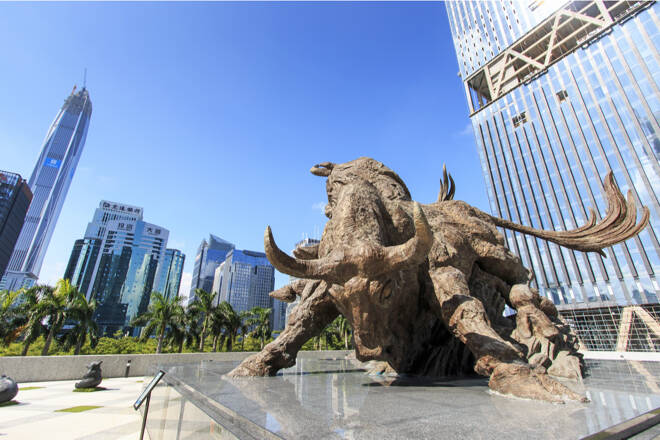Advertisement
Advertisement
Hang Seng Index, ASX 200, Nikkei 225: Trade Data, Wages, and Earnings in Focus
By:
Key Points:
- The Hang Seng bucked a bearish Tuesday session, with PBoC moves aimed at bolstering the economy, contributing to the gains.
- Overnight US economic indicators and US equity market moves from Tuesday will likely set the tone for the Wednesday Asian session.
- On Wednesday, trade data from Japan, Australian wage growth, and corporate earnings will warrant investor attention.
Overview of the Tuesday Session
On Tuesday, the Hang Seng Index bucked a bearish Asian session, ending the day in positive territory. However, the ASX 200 and Nikkei closed the day in negative territory.
There were no US market influences from Monday. The US markets were closed for President’s Day.
However, central bank activity and corporate earnings influenced buyer demand for stocks listed on the ASX 200 and the Hang Seng Index.
On Tuesday, the RBA Meeting Minutes showed ongoing concerns about inflation and a willingness to raise interest rates. The lingering threat of an RBA rate hike influenced the appetite for ASX 200-listed stocks. Corporate earnings and news also contributed to the loss.
PBoC policy maneuvers drove demand for Hang Seng-listed stocks. Significantly, the PBoC slashed the 5-year loan prime rate by 25 basis points to 3.95% but left the 1-year loan prime rate at 3.45%. Reports of a pickup in demand over the Chinese New Year also raised hopes of new found momentum in the Chinese economy.
Trade Data from Japan, Australian Wage Growth, and Earnings in Focus
On Wednesday, overnight US economic indicators and US equity market moves will likely set the tone for the session.
The CB Leading Economic Index fell by 0.4% in January after declining by 0.2% in December. Investors sentiment toward the Fed interest rate trajectory influenced market risk sentiment.
On Tuesday, the Nasdaq Composite Index fell by 0.92%. The S&P 500 and the Dow declined by 0.60% and 0.17%, respectively.
However, the Asian economic calendar also warrants investor attention on Wednesday.
Trade and Reuters Tankan Index data from Japan will garner investor interest. The trade data will likely have more impact. Following the release of Q4 GDP numbers, a weakening demand environment could affect the timeline for a BoJ pivot away from negative rates.
Economists forecast the trade balance to fall from a ¥62.1 billion surplus to a ¥1,925.9 billion deficit. Investors must look beyond the headline figure, with imports and exports needing consideration.
Australian wage growth figures for Q4 will likely influence the RBA interest rate trajectory. Hotter-than-expected wage growth could raise bets on an RBA rate hike and pressure rate-sensitive ASX-listed stocks.
Economists forecast wages to increase by 4.1% year-over-year after rising by 4.0% in Q3.
The economic indicators will influence buyer demand for AXS and Nikkei-listed stocks. However, corporate earnings also need consideration.
Hang Seng Bank (HK: 0011), HSBC (HK: 0005), Rio Tinto Ltd. (ASX: RIO), and Woolworths (ASX: WOW) are among the big names to release earnings.
On Wednesday, the ASX 200 and Nikkei futures were down 21 and 230 points, respectively.
ASX 200
The ASX 200 fell by 0.08% on Tuesday. Mining stocks dragged the ASX 200 into negative territory. Bank, gold, and oil stocks had mixed sessions, while tech stocks limited the downside. The S&P ASX All Technology Index (XTX) rallied 1.08%.
BHP Group Ltd (BHP) and Rio Tinto Ltd. (RIO) declined by 1.09% and 2.23%, respectively. Fortescue Metals Group Ltd. (FMG) ended the session down 0.67%. A pullback in iron ore prices pressured the trio. BHP earnings contributed to the losses.
The big four banks had a mixed session. Westpac Banking Corp. (WBC) rallied 2.61% as investors reacted further to a positive outlook. National Australia Bank Ltd. (NAB) gained 0.96%. However, ANZ Group Holdings Ltd (ANZ) slid by 2.18% as investors reacted to the green light to acquire Suncorp Bank. The Commonwealth Bank of Australia (CBA) declined by 0.15%.
Gold (XAU/USD) and oil stocks also had a mixed session. Northern Star Resources Ltd. (NST) gained 0.30%, while Evolution Mining Ltd. ended the session flat. Woodside Energy Group Ltd (WDS) fell by 1.11%, while Santos Ltd (STO) rose by 0.95%.
Hang Seng Index
On Tuesday, the Hang Seng Index gained 0.57%. Real estate and tech stocks contributed to the losses. The Hang Seng Mainland Properties Index (HSMPI) gained 0.83%. The Hang Seng Tech Index (HSTECH) ended Tuesday up 0.35%.
Alibaba (9988) rose by 0.91%, while Tencent (0700) declined by 0.21%.
However, bank stocks had a positive session. HSBC (0005) ended the day up 0.40%. China Construction Bank (0939) and Industrial Commercial Bank (1398) gained 1.48% and 1.53%, respectively.
The Nikkei 225
(Graph for reference purposes only)
The Nikkei fell by 0.28% on Tuesday.
Bank stocks ended the session in negative territory. Sumitomo Mitsui Financial Group Inc. (8316) and Mitsubishi UFJ Financial Group Inc. (8306) declined by 1.43% and 0.67%, respectively.
However, the main components of the Nikkei had another mixed session.
Sony Group Corp. (6758) and Fast Retailing Co. Ltd. ended the session down 1.19% and 0.86%, respectively. Softbank Group Corp. (9948) and Tokyo Electron Ltd. (8035) fell by 0.11% and 0.43%, respectively.
KDDI Corp. (9433) bucked the trend, gaining 0.46%.
For upcoming economic events, refer to our economic calendar.
About the Author
Bob Masonauthor
With over 28 years of experience in the financial industry, Bob has worked with various global rating agencies and multinational banks. Currently he is covering currencies, commodities, alternative asset classes and global equities, focusing mostly on European and Asian markets.
Advertisement
